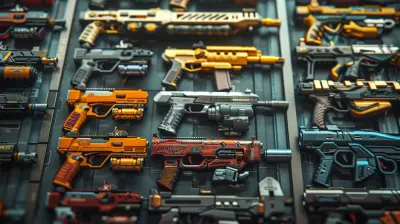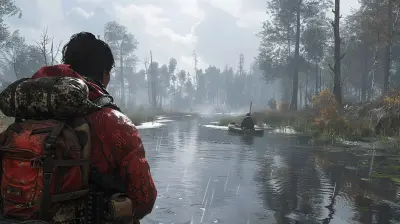The Role of Character Development in Single Player RPGs
9 June 2025
If you've ever sunk hours into a single-player RPG, you know the magic isn't just in slaying dragons or collecting loot—it's in the journey of becoming someone else. You start off as a humble nobody, and by the end, you're a battle-hardened hero, a morally complex anti-hero, or maybe even a villain if you're feeling spicy.
But what really pulls us into these virtual worlds isn't just the flashy combat or shiny graphics—it’s how we grow with our characters. So, let’s talk about the real heart of single-player RPGs: character development. Buckle up, because we’re diving deep into what makes this narrative element so iconic, emotional, and downright addicting.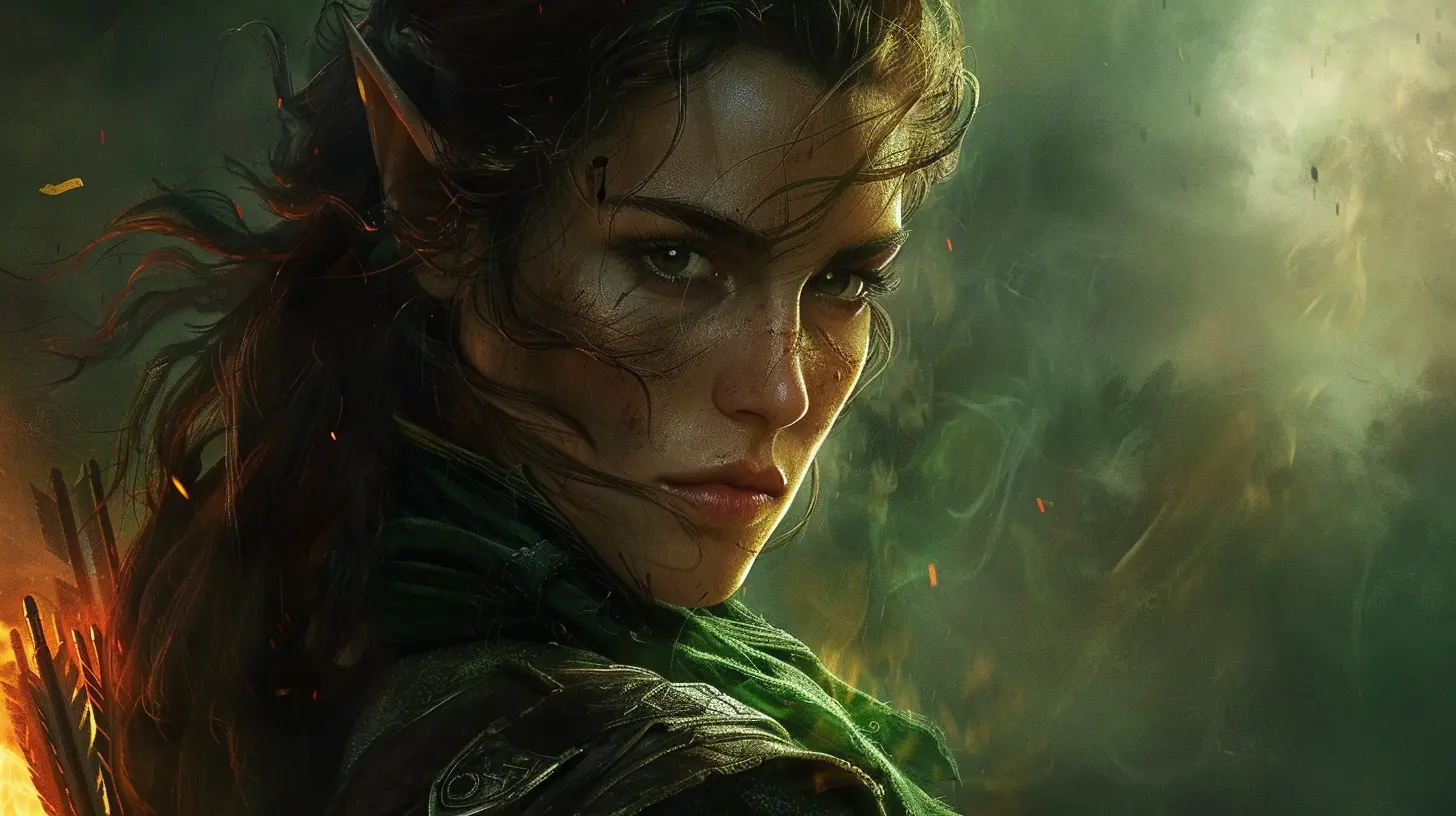
Why Character Development Matters
Alright, let’s start with the basics. Why do we care so much about character development in the first place?Think about your favorite book or movie. Chances are, it's not just the plot that keeps you invested—it’s the characters. You’re not just watching events unfold; you’re watching people evolve. That’s exactly what happens in a great RPG. You don’t just play the story, you become the story.
Character development bridges the gap between you and the digital avatar you're controlling. It gives you a reason to care. Whether it’s a gritty origin story, a tale of redemption, or a slow descent into chaos, that transformation makes every decision feel weighty and personal.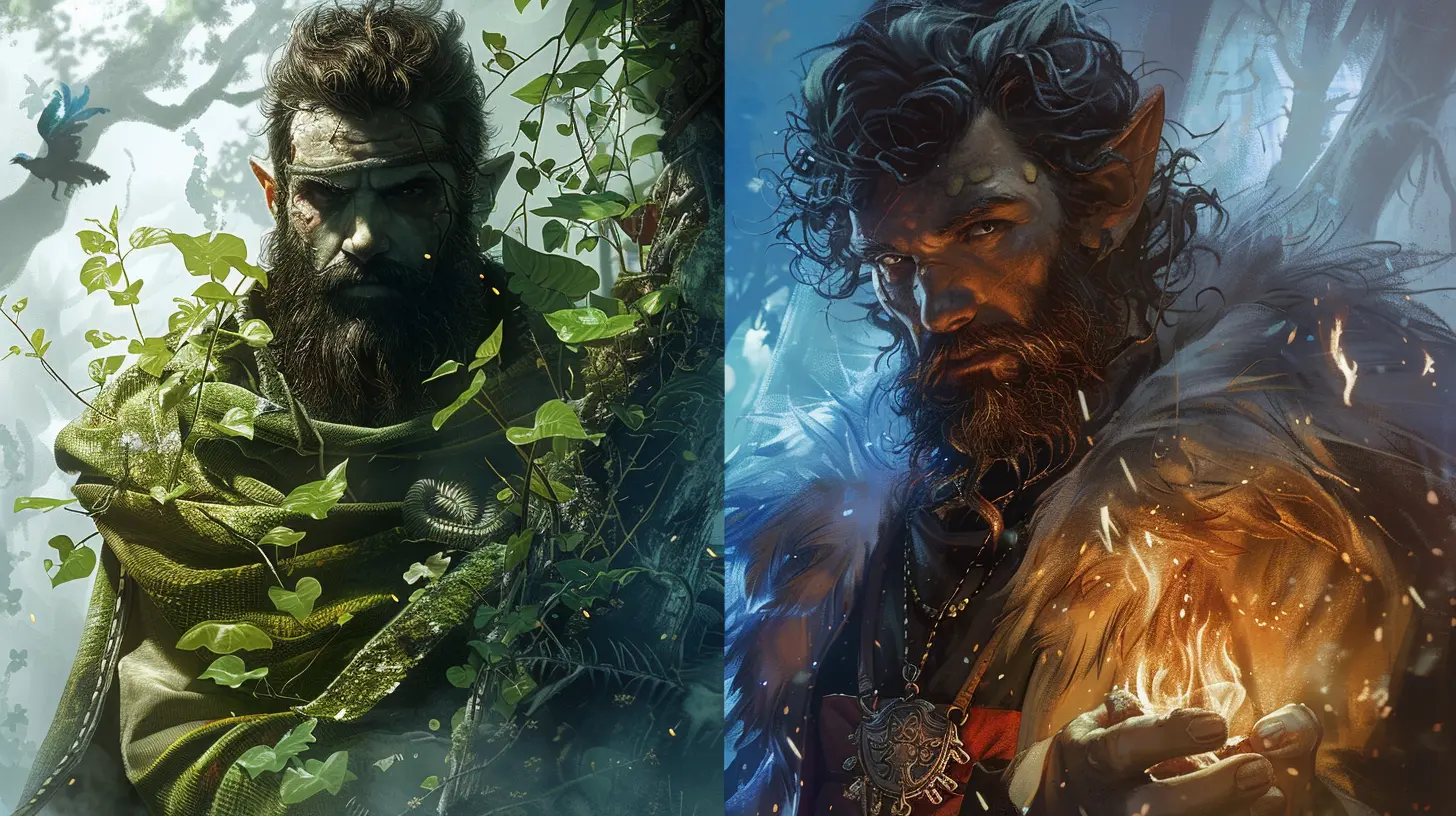
From Zero to Hero (Or Something Else Entirely)
The classic formula in many RPGs is simple: start as a nobody, rise to greatness. But it's not always about becoming a hero. Sometimes, you're forced to make tough choices that mold you into something else entirely.Take games like The Witcher 3 or Mass Effect. The characters don't follow a linear path. Every action, every dialogue choice, shapes who they become. And by extension, who you become. That’s power, right? You’re not just reacting to the story—you’re actively creating it.
And let’s not forget the emotional payoff. That one moment when your companion sacrifices themselves because of a bond you built over dozens of hours? Yeah, that’s the stuff that sticks with you long after the credits roll.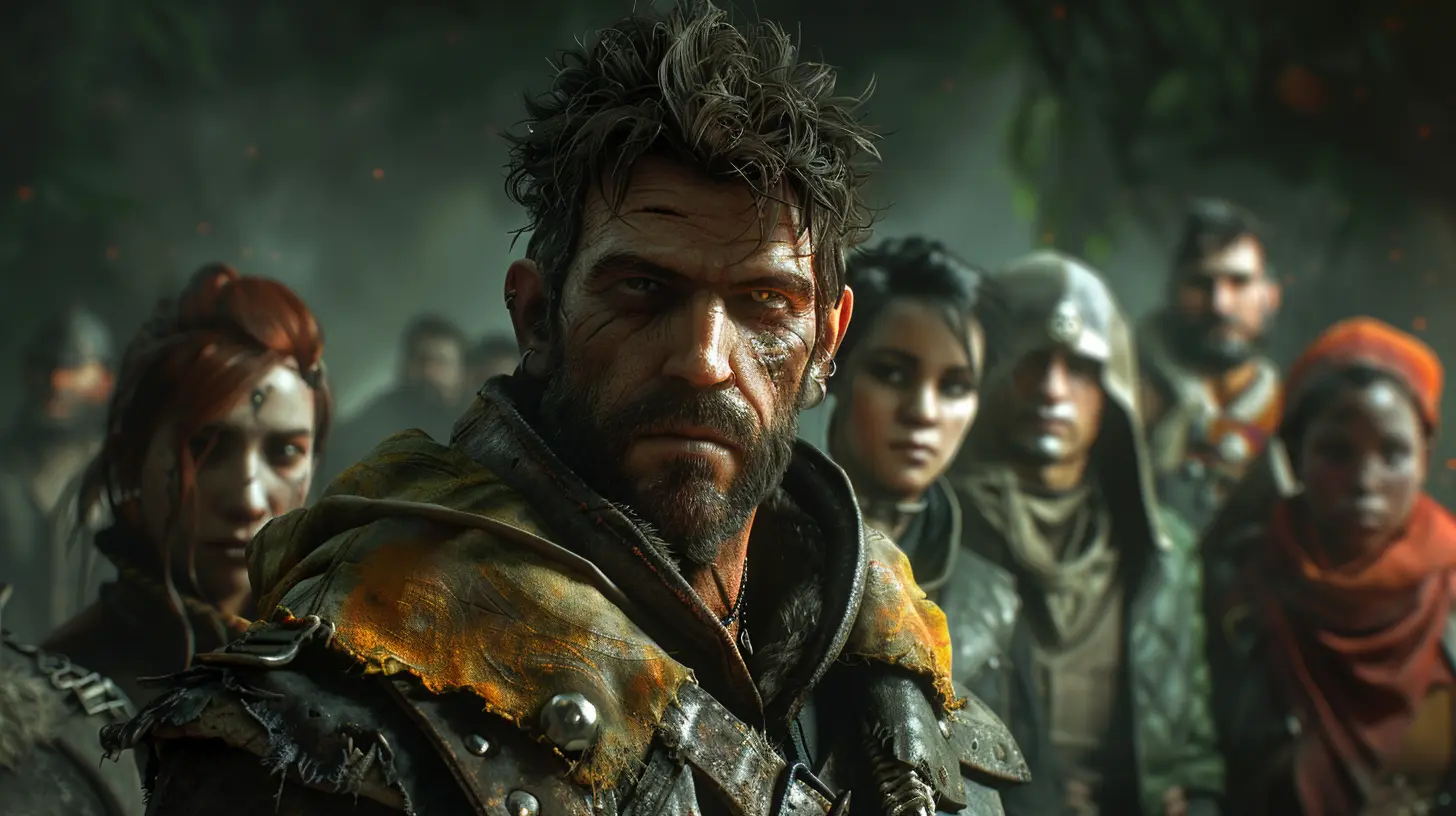
Morality and Choices: The Forks in the Road
One of the juiciest parts of character development? Morality systems. Let’s be real—who doesn’t love a good ol’ moral dilemma?Should you save the village, or take the gold and run? Spare the bad guy, or take revenge? These decisions aren't just about checking boxes. They shape your character’s identity and impact how others in the world respond to you.
Games like Dragon Age, Fable, and The Elder Scrolls series really lean into this. They show how your actions ripple across the entire game world. Not to mention, they add replay value like crazy—you can play through the whole game again and watch how different your character becomes with just a few changed decisions.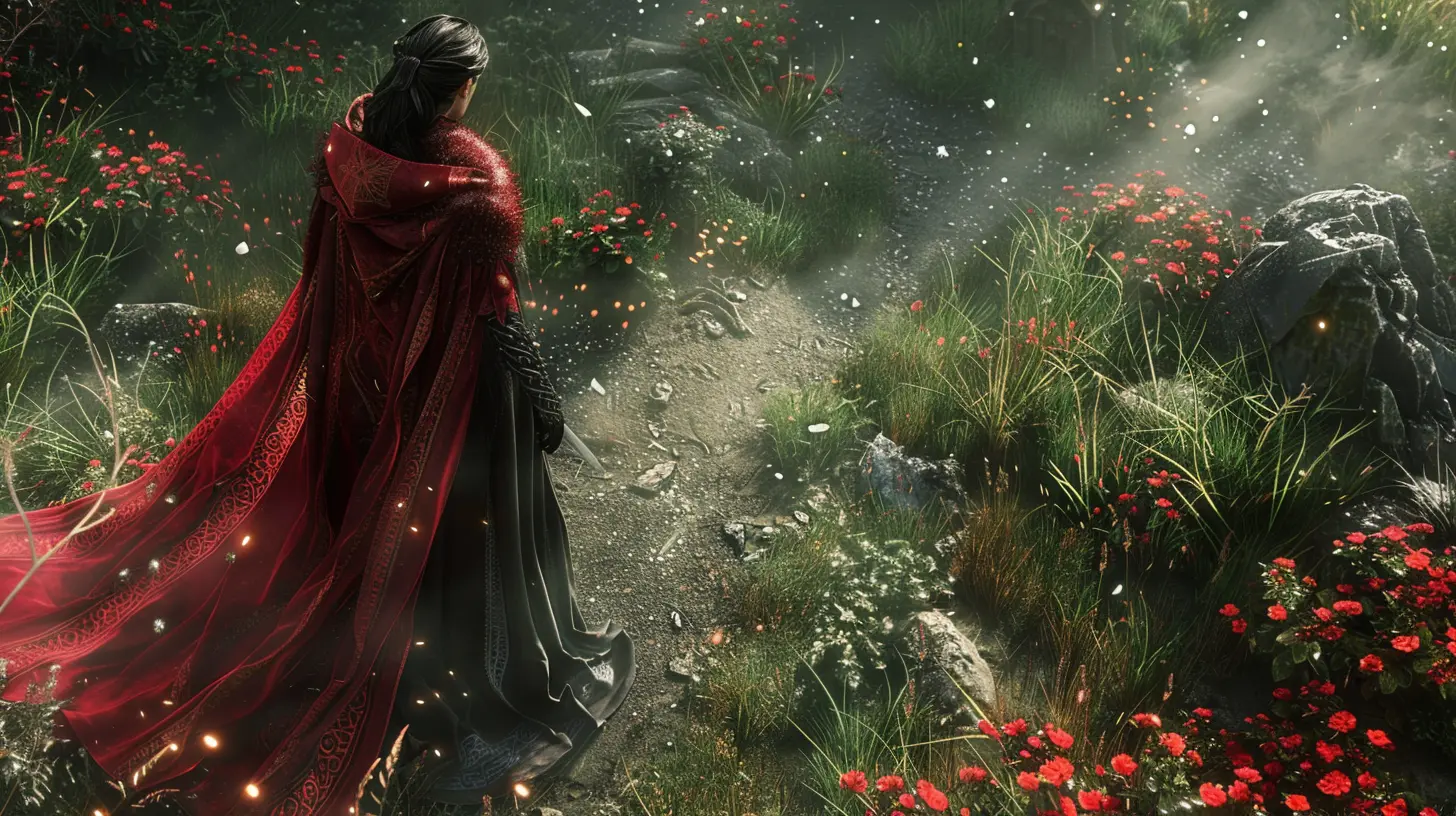
Skill Trees and Progression: More Than Just Numbers
Okay, let’s talk mechanics for a sec. Skill trees, level ups, new gear—these things are like candy for RPG fans. But it’s not just about beefing up stats. It’s about shaping your character’s identity.Want to be a stealthy assassin who never gets caught? Go for it. Prefer to bash enemies with a giant hammer? Have at it. The beauty of RPGs is in the freedom to build your version of the protagonist.
Plus, these progression systems reinforce the narrative. As you grow more powerful, it reflects your character’s journey. You feel their transformation not just through cutscenes, but through gameplay itself.
Companions and Relationships: The Glue of the Journey
Let’s not overlook companions. Those lovable (or sometimes annoying) side characters add layers to your own growth. They challenge you, support you, and sometimes even betray you. But they always push your development forward.Games like Persona 5 nail this. Your relationships directly impact your abilities and character perks. But more than that, they add emotional weight. When your choices affect someone you care about, it hits different.
And honestly, who hasn’t gotten a little too emotionally attached to a fictional character? No shame—RPGs create those emotional connections by giving these characters depth and letting you grow alongside them.
World-Building and Personal Growth: Two Sides of the Same Coin
The best RPGs don’t just develop the main character—they develop the world along with them. Your growth is often mirrored in how the world reacts.Remember in Skyrim when townsfolk started treating you with awe after you'd done some epic questing? That’s validation right there. It’s not just about gaining XP. It’s about earning respect, changing fates, and literally rewriting history in that universe.
In a way, the game world becomes a character too. As you change, so does it. That's next-level immersion.
Emotional Investment: The Real Game-Changer
Here’s the real kicker—character development makes you care. Like, really care.You start feeling responsible. Your mistakes sting. Your victories feel earned. And when something tragic happens, it can actually hurt. I mean, let’s be honest, some of us still haven’t recovered from Aerith in Final Fantasy VII.
That’s the magic. When you get emotionally invested in a character’s development, the game becomes more than just entertainment. It becomes an experience.
Customization: Your Story, Your Way
We can’t ignore how character customization boosts development. Whether it’s picking a backstory, choosing skill paths, or customizing appearance, every choice reinforces that this is your journey.Games like Cyberpunk 2077 let you pick a background that completely shifts how people treat you. That one choice snowballs into dozens of little interactions that change your whole gameplay vibe. It feels authentic because it’s tailored to you.
That’s the secret weapon of RPGs: personalization makes growth meaningful.
Narrative Arcs: Not Just a Straight Line
Let’s talk about arcs. A good character arc should feel like a rollercoaster, not a straight shot upward.Sometimes your character faces setbacks. They get betrayed. They question their morals. These moments aren’t failures—they’re opportunities to build depth. It’s the struggle that makes the eventual success feel earned.
Take Red Dead Redemption 2’s Arthur Morgan. His arc isn’t just powerful—it’s heartbreaking. Watching him wrestle with his past, grow a conscience, and try to redeem himself? That’s storytelling gold.
When It’s Done Right: Memorable Examples
Let’s run through a quick list of single-player RPGs that nailed character development:- Geralt of Rivia (The Witcher 3) – A stoic monster hunter with a surprisingly tender soul. His choices and relationships evolve him far beyond the gruff guy with white hair.
- Commander Shepard (Mass Effect series) – Your Shepard can be a Paragon of virtue or a total renegade, and every choice shapes the galaxy (and your crew).
- Arthur Morgan (Red Dead Redemption 2) – A brutal outlaw who slowly seeks redemption. A masterclass in emotional storytelling.
- Hawke (Dragon Age II) – You literally shape their personality—sarcastic, noble, or ruthless.
- V (Cyberpunk 2077) – A merc with a short timeline and big decisions. No matter your path, V’s growth is intense and deeply personal.
Each of these characters starts in one place and ends somewhere entirely different—and not always on a high note. That’s the power of character development done right.
Where Games Sometimes Miss the Mark
Let’s be fair—character development can also go off the rails. Ever played a game where your choices felt empty? Or the characters had all the depth of a cardboard cutout?That happens when games focus too much on spectacle and not enough on story. Or when progression is all about stats, not substance.
We don’t just want to level up—we want to grow. The best RPGs remember that.
Final Thoughts: Why It Matters to Us
At the end of the day, we're not just gamers—we're storytellers. We love single-player RPGs because they let us live stories, not just watch them. Character development is what ties it all together. It’s what makes us pause before a big decision. It’s what keeps us up late saying, “Just one more quest.”More than anything, it’s why we come back to these games years later. Not for the graphics. Not even for the gameplay. But for the characters that felt real—for the parts of ourselves we saw in them.
So next time you start up a new RPG, take a moment. Look at your character, fresh-faced and full of potential. Because by the time the credits roll, neither of you will be the same.
all images in this post were generated using AI tools
Category:
Single Player GamesAuthor:

Luke Baker
Discussion
rate this article
2 comments
Vanessa Rocha
Character development in single-player RPGs is essential, as it shapes player experiences and emotional investment. When characters evolve through meaningful choices and narrative depth, it transforms gameplay into a personal journey. I've found that the most memorable RPGs are those that prioritize authentic character arcs and player agency.
June 22, 2025 at 3:01 AM

Luke Baker
I completely agree! Meaningful character development is crucial in single-player RPGs, as it enhances player immersion and emotional connection, making each journey unique and memorable.
Jordan McLaughlin
Absolutely loved this article! Character development truly brings single-player RPGs to life, making every choice feel meaningful. It’s a joy to see characters grow and evolve—such a rewarding and immersive experience! Keep it up!
June 18, 2025 at 2:35 AM

Luke Baker
Thank you so much! I'm glad you enjoyed the article and appreciate your thoughts on character development in RPGs. It truly enhances the gaming experience!
